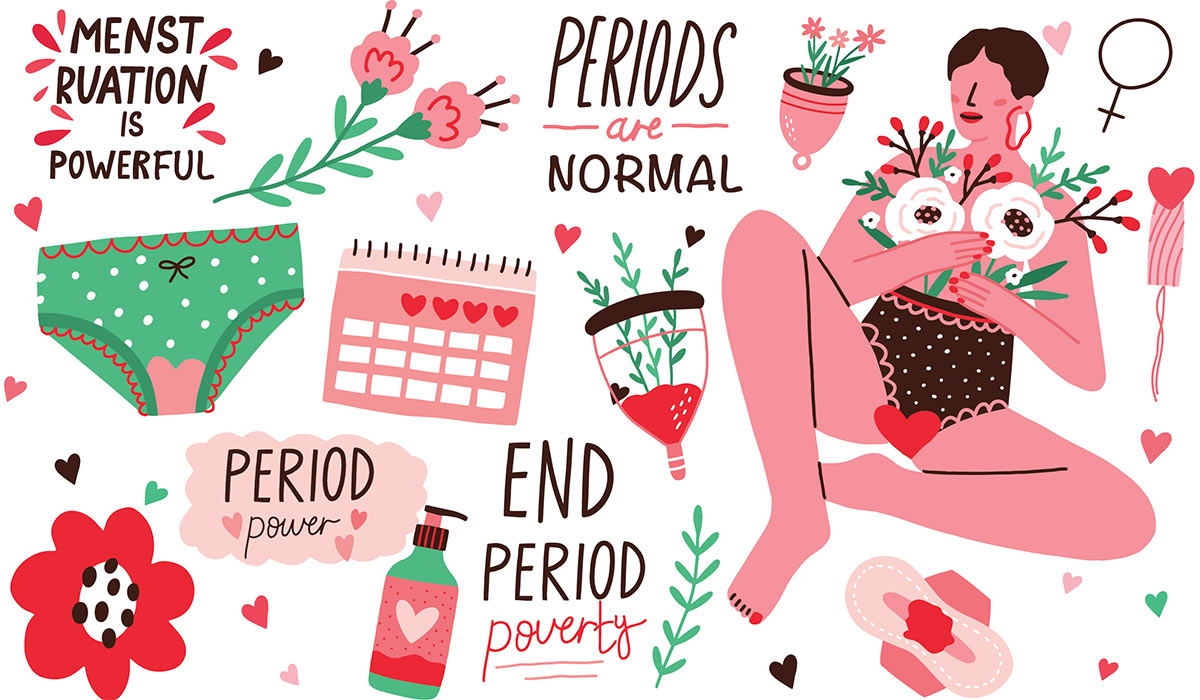The 411 On Bloating Causes + How To Fix It Fast
 via Giphy
via Giphy
At some point or another, we’ve all experienced bloating. Maybe it was after a romantic evening with your boo at your fave Italian restaurant where you devoured breadsticks and gooey alfredo #YUM! Or maybe you noticed a puffy belly a couple of hours after going to town on some veggies. Look, here’s the thing: bloating happens! But keep reading for the full rundown on why we experience bloat and how to alleviate some of the (literal) pressure according to the pros.
What is Bloating, Exactly?
“The feeling of mild bloating or slight abdominal distention (an increase in abdomen size) is normal after eating a large meal, particularly one full of fat or rapidly fermentable carbohydrates such as beans, wheat, onion, and garlic,” explains Kate Scarlata, a registered dietitian and digestive health expert. (Check out some other common bloat-causing foods here.)
Basically, those rapidly fermentable carbs are consumed by microbes in our gut, which results in a build-up of gas. Air also enters our digestive tract simply from the process of eating or drinking because we inadvertently swallow air.
Another reason you may experience bloating is if you eat too fast, which causes you to accidentally swallow more air, notes Melissa Kathryn, a certified holistic nutritionist. Eating too fast can also cause you to eat too much since your brain doesn’t have time to catch up with your body. Kathryn explains that eating large amounts of food sits heavyily in your body and takes some time to properly digest and break down. Que the bloat.
The same bloating sensation happens when you drink too much water, though H2O is processed by your body more quickly than food, so it’s a fleeting feeling). Additionally, consuming lots of salt can create a feeling of bloat since salt causes your body to hold onto water. (Some medical issues can cause bloat, which we’ll address in a second.)
The good news is that bloating tends to pass relatively quickly. In fact, Kathryn says that the feeling usually goes away within a few hours, though it can sometimes take up to a full day.
Posts You'll Love:
Tricks to Relieve Bloating
 via Giphy
via Giphy
If you’re currently in the midst of a bloating episode – or if you’re simply taking note for the future – there are a few ways you can find some relief.
Guzzle some water: “It might sound counterintuitive to drink more water when retaining water, but doing so can actually help reduce bloat because it naturally flushes our system of excess water and sodium that we may be retaining,” explains Kathryn.
Go for a stroll: Scarlata says, “Moving your body can contribute to movement of the colon, [which can] help the contents in the intestine move and be eliminated.” Again, it might feel counter-intuitive since the last thing you feel like doing is moving, but it could make you feel much better.
Grab a cuppa: In addition to water, Scarlata says that getting a little caffeine into your body via coffee or tea can help get your intestines moving, too. (We’ve all seen the “coffee makes me poop” mug by now.)
Strike a (yoga) pose: “Get your Zen on with some yoga poses that help release trapped gas, such as the extended wide squat, knees hugged to chest, and bridge pose,” advises Scarlata.
Rub your belly: A simple belly massage can help relieve a bloated gut, advises Kathryn. She adds that you can also use a heat compress for an extra act of self-care.
When to See a Doctor About Bloating
 via Giphy
via Giphy
If bloating persists for days, or if you consistently find yourself dealing with uncomfortable bloat, it could be time to hit up your doc.
“Some other symptoms to look for include lethargy, brain fog, and odd experiences with your stool such as discoloration, excessive odors, or heavy constipation or diarrhea,” says Kathryn.
She says this could indicate an underlying medical issue that your doctor can pinpoint and help you overcome. These can include leaky gut, irritable bowel syndrome (IBS), small intestinal bacterial overgrowth (SIBO), celiac disease, liver issues, gastroparesis (a delay in stomach emptying), or in very rare cases, colon cancer.
The bottom line: Like we said, bloating happens – even when you’re eating foods that are good for you (like veggies). Your best defense is to eat slowly, pay attention to portions, and avoid the foods that trigger the puff (pro tip: keep a food diary). If you’re dealing with a chronic issue, it’s absolutely worth bringing up at your annual checkup, or if it’s an issue that’s really bothering you, then set up an appointment ASAP!
For more tips, check out five foods to avoid to beat the bloat.























Leave a comment